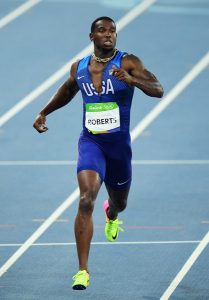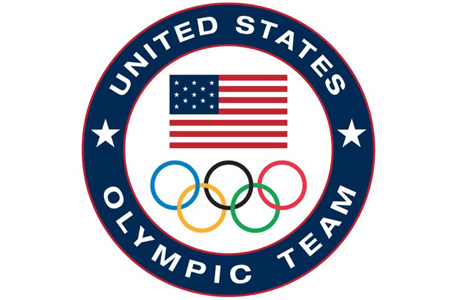Performance-enhancing drug (PED) testing protocols have gotten more and more stringent and more effective over the last decade or so, and nowhere is the sensitivity of these testing protocols on better display than with the IOC and WADA – the two major governing bodies responsible for making sure that every Olympic athlete is competing in a completely clean and PED free fashion.
Sometimes, however, these incredibly stringent PED and anti-doping policies and up “catching” athletes that weren’t trying to cheat at all, athletes that are finding themselves in relatively hot water and their careers threatened because of false positive tests that might sidelined their chance for Olympic gold and lucrative endorsement contracts moving forward.
This is exactly what happened to Olympic gold medalist Gil Roberts, a 28-year-old member of the United States men’s 4 x 400 m relay team that found himself in more than a little bit of hot water with the IOC and the WADA as well as the USADA due to testing positive for performance-enhancing drugs nearly a full year after the Olympics had concluded.

Roberts failed and out of competition tests in 2017
As part of routine testing of Olympic athletes both before and after the Olympics, Roberts was subjected to a number of performance-enhancing drug and anti-doping testing protocols throughout 2016 and 2017 to make sure that he wasn’t trying to subvert the rules and break the law of competition.
During an out of competition test on March 24, Roberts ended up testing positive for a performance-enhancing drug that acts as both a diuretic and as a masking agent. This substance is frequently used by dopers looking to get around the anti-doping protocols in place by the IOC and a variety of other organizations around the world, and resulted in an immediate ban for Roberts.
Because he is 28 (and will be 31 by the time he gets the opportunity to compete at the Summer Olympics in 2020) this ban could have completely ended his career if it was upheld. Obviously, Roberts contested the positive test and appealed both to the IOC and the US Olympic Committee in hopes of having the suspension overturned after the evidence was reviewed.
A positive test from a kiss
Once Roberts was made aware of the band substance that he was allegedly using to cheat at the Olympics he immediately became aware of how he had ingested this substance in the first place – and it all happened because he kissed his girlfriend who had been taking the diuretic for medical reasons.
Bringing all of this information to light during the appeals process, and even going as far as to bring his girlfriend – an Olympic level sprinter that had a waiver for using this substance that was prescribed to her from her physician – it didn’t take long for the IOC, the WADA, and the USADA to recognize that they are testing protocols have been too sensitive in this situation.
Even still (and understandably so) all of these agencies requested that Roberts submit another sample, that he take another out of competition test, and if he was cleared of all of these doping allegations he would immediately become eligible to continue training with the US Olympic team for the upcoming Summer Games and would have all of his previously forfeited titles and metals returned.
This story does have a happy ending. Just recently Roberts found out that all of his new samples came back negative for performance-enhancing drugs and he has already rejoined the US Olympic team in hopes of reclaiming gold once again in 2020.







